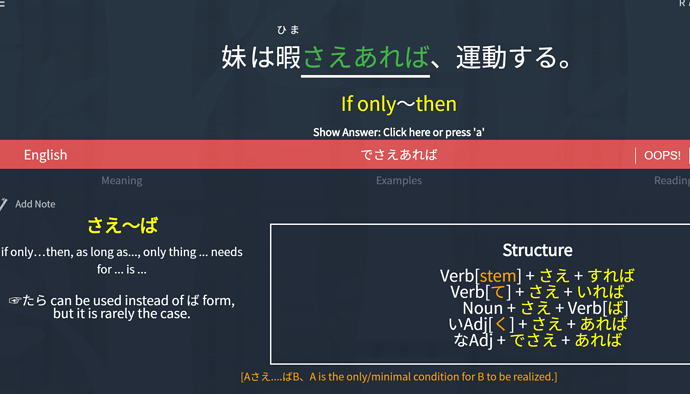English translation:
if only…then
as long as…
only thing … needs for … is …
Structure:
Verb[stem] + さえ + すれば
Verb[て] + さえ + いれば
Noun + さえ + Verb[ ば ]
いAdj[く] + さえ + あれば
なAdj + でさえ + あれば
Explanation:
[Aさえ…ばB、A is the only/minimal condition for B to be realized.]
たら can be used instead of ば form
but it is rarely the case.



